by Melody Wright, LMFT
Somatic therapy is an approach to psychotherapy that emphasizes the mind-body connection.
Somatic therapists recognize that suppressed and unprocessed emotions are often stored in the body, showing up as physical symptoms like muscle pain, headaches, and nausea. Because of this, somatic therapy incorporates body awareness exercises into the healing process.
Here at Life by Design Therapy, we are passionate about practicing somatic therapy and strong advocates of its benefits for mind and body healing. In this blog post, we discuss four of those benefits, which may help you decide if somatic therapy is right for you.
1. Change your brain, change your life.
Our brains and bodies are creatures of habits. They internalize the thought patterns and belief systems we are taught from an early age. Much like a computer, these become the "programs" that run our lives.
When we experience trauma or emotional distress, our brains and bodies become wired for survival. The fight, flight, fawn, or freeze response becomes the "program" we're running on; however, living life on "survival mode" can quickly get exhausting.
By harnessing the power of the body through somatic therapy, we can rewire our brain's neural pathways to get ourselves out of survival mode and into a conscious state of emotional balance. In this way, somatic therapy can help you take back control of your life from harmful thoughts, beliefs, and patterns.
2. Gain insight into your thoughts and behaviors.
Our bodies communicate with us via sensations. Those aches and pains you may be experiencing are messages from your body that something is wrong. Sometimes, that "something" may be a medical issue, like an injury or illness -- while other times, it may be a sign of unprocessed, stored emotions coming to the surface.
Imagine how much insight you would gain into your thoughts and behaviors if you could translate the messages your body was sending you. How much better could you know yourself if you learned to understand the language your body speaks?
So many of us operate on "autopilot," leading us to live in a constant state of disconnect from our bodies. In this state, we don't pay attention to the messages our body tells us, or we choose to actively ignore them in favor of productivity or other concerns. Yet when we pause to listen to what our body has to tell us, we can gain a lot of insight about the thoughts, beliefs, habits, and behaviors that shape the quality of our relationships with ourselves and others.
3. Get the tools to overcome what's holding you back.
Stored, unprocessed emotions -- which often show up in the body -- hold us back. They prevent us from showing up as the best, most fulfilled versions of ourselves. Hence, somatic therapy isn't just about noticing and interpreting your bodily sensations; it's also about giving you the tools you need to overcome those physical and emotional blocks.
In order to achieve fulfillment, somatic therapy techniques that help you gain insight into your bodily sensations must be paired with actionable, therapeutic steps toward healing. Recognizing your unprocessed emotions is a start, but simply being aware of these issues does not solve them.
The key to overcoming these barriers is to work through them. One of Life by Design Therapy's somatic therapists can help you achieve this on a mental, physical, and emotional level. At each level of awareness, you will learn tips and tools to help you understand, process, and manage your emotions in real-time, to prevent them from holding you back.
4. Let go of self-judgment.
Finally, somatic experiencing, or noticing our bodily sensations, isn't just about recognizing the way we are feeling. It's also about letting go of the judgmental thoughts we have about our emotions and physical sensations, because our self-talk so deeply influences the way we feel, physically, mentally, and emotionally.
For example -- when your body hurts, how do you speak to yourself? Do you approach the sensation with curiosity, non-judgmentalness, and compassion...or do you criticize yourself by listing all the reasons why you shouldn't allow your physical pain to hold you back? You might even find yourself attempting to ignore or suppress those uncomfortable sensations.
Hence, somatic therapy is also about giving yourself permission to approach your bodily sensations non-judgmentally. Forget assigning physical, mental, or emotional sensations labels like "good" or "bad," and instead invite yourself to observe what you can learn from your body when you approach it with curiosity instead of judgment.








